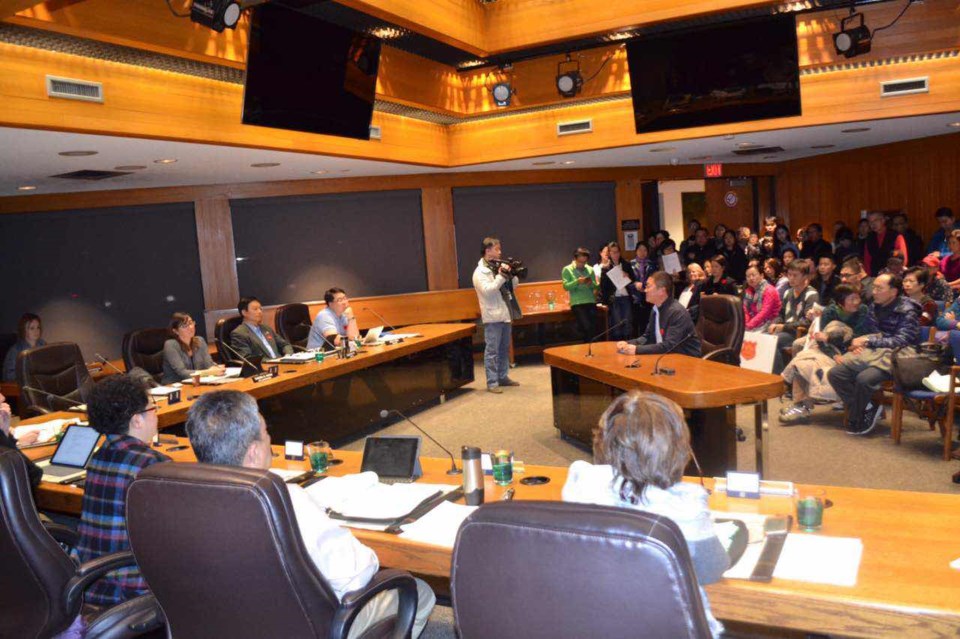Quick, name a Richmond school trustee.
If you were able to do that, congratulations. If you weren’t, you’re not alone.
When it comes to elected positions in Canada (unlike the U.S., where they elect everyone from sewer worker to dog catcher) school trustees have perhaps the lowest of profiles.
Few people, even parents with kids in public school, could tell you who our trustees are — or even what they do. That, in part, is because what they do is, well, rather nebulous.
There was a time when school trustees had a say in taxation, union negotiations and educational policy. But that’s all handled by the provincial government now. In fact, their powers have been so diminished, Richmond Citizens’ Association (RCA) and RITE Richmond are not even bothering to field trustee candidates in the upcoming civic election.
RITE’s Coun. Carol Day, a former school trustee herself, said the board’s powers are largely limited.
If those slates want to focus their energies on city council, fair enough, but it does bring up the question of school trustees and why we even have them.
Some say the job should be done by MLAs, others suggest a system similar to what we have with our regional health authorities, which are run by bureaucrats and overseen by politically appointed boards of directors.
I say handing over local control, however limited, is never a good idea. MLAs have enough on their plates and would be forced to toe party lines. And the health authority model affords local communities almost no say.
In fact, I’d argue that it is because so many education decisions have already been centralized that locally elected school boards are even more important as a means of providing checks and balances and ensuring large school bureaucracies are still responsive to local needs.
It matters that we have public meetings where we can be heard. I realize that major policies, such as the one regarding sexual orientation and gender identity, was mandated by the province; our local board had to come up with something. But doing so was a grassroots process. Granted, some have complained that “parents weren’t heard.” However, I would counter that many of us were heard, and being heard and being heeded is not the same. But regardless of what you think of the final decision, the board came to it after a huge amount of community outreach. That, in itself, is valuable.
And then there are the times, albeit rare, when provincial policies actually changes on account of opposition at the school board level. Case in point, the provincial government’s about-face in 2016 regarding seismic upgrades. An upcoming provincial election may have had something to do with it, but it still happened and probably wouldn’t have, had parents not had a venue where they could voice their outrage.
Point being, school boards matter.
Even if some trustees view it as a stepping stone to other levels of government, it’s never smart to take opportunities for democratic representation for granted.



